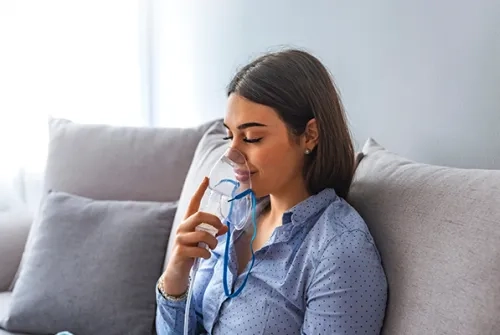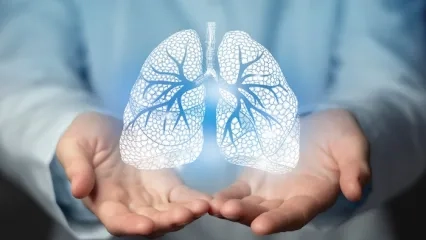Alo Yeditepe
Alo Yeditepe
Lung Patients Should Not Stop Their Medications
5 million COPD patients and 6 million asthmatic patients in our country are among the riskiest groups for Coronavirus COVID-19. Stating that being under full control of the patients is one of the strategies that reduce the risk, Yeditepe University Koşuyolu Hospital Chest Diseases Specialist Asst. Prof. Dr. Seha Akduman pointed out that patients should continue to use their cortisone-containing drugs as recommended by their physicians during this period.
COVID-19, which has spread all over the world, unfortunately threatens many people, especially chronic lung patients. Drawing attention to the fact that patients with COPD constitute the riskiest group due to their age and history of additional diseases, Asst. Prof. Dr. Seha Akduman reminded us that those with immune-strengthening diseases such as asthma, chronic cardiovascular patients, smokers, and chronic kidney failure are also at high risk.
Asst. Prof. Dr. Seha Akduman gave this information: “Coronavirus COVID-19 can cause severe pneumonia in the lungs, that is, pneumonia, followed by Acute Respiratory Distress Syndrome. In this case, the severely damaged lung is unable to adequately cleanse the blood and supply enough oxygen to the tissues. Unfortunately, after the onset of multi-organ failure, the patient can die.”
Patients Should be Under Full Control
Prevention of contact with the coronavirus COVID-19 is the main goal in these patient groups. In order to achieve this, full compliance with contact and isolation rules is extremely important. In order to minimize the risk of loss of life in patients, their disease needs to be under full control.
Medications Should Be Used Regularly
In order to ensure control in asthma and COPD patients, it is important not to smoke, to use detergents and cleaning materials with excessive solubility at home, to reduce allergen exposures, and to use drugs regularly.
Pointing out that some patients hesitate to use respiratory drugs, steroids, that is, cortisone, and will weaken immunity, Yeditepe University Koşuyolu Hospital Chest Diseases Asst. Prof. Dr. Seha Akduman: “These drugs have a great role in controlling diseases. During these periods, it is important not to miss the doses of the drugs and to use them carefully. Patients with impaired control, that is, shortness of breath, cough, and sputum complaints should definitely talk to the physician who follows them. There is no protection against pneumococcus, that is, pneumonia vaccine and flu vaccine. Therefore, the most effective method is to avoid contact with patients.”
About
Faculty and Year of Graduation:
Gazi University Faculty of Medicine, 2007
”
See Also
- How to Cleanse Your Lungs?
- Is Breathing Air Dangerous in Fires?
- What is Electronic Cigarette Disease (EVALI)? EVALI Symptoms and Treatment
- What is COPD? Symptoms and Treatment of COPD
- Long Journeys Increase the Risk of Embolism!
- What Asthma and COPD Patients Should Pay Attention to When Using Air Conditioning!
- What is Allergy? What are the Symptoms of Allergy?
- What is Desert Dust? Harms of Desert Dust
- Lung Cancer Screening Age
- What is Good for Cough? How to Cure Cough?
- Lung Cancer Symptoms and Treatment
- 10 Ways to Have a Sound Sleep in the Heat
- What Should Asthma Patients Be Cautious About?
- Does Poor Quality Sleep Increase The Risk of Asthma?
- What Causes Insomnia, Diagnosis and Treatment
- 9 Common Misconceptions About COPD
- Causes, Symptoms, and Treatment of Asthma
- Allergy and Asthma During Pregnancy
- It Is Aimed to Eliminate Tuberculosis Worldwide By 2030
- 4 Significant Preliminary Symptoms of Lung Cancer
- How Does Acid Rain Affect Human Health?
- The Slowing Traffic in Istanbul Increases the Risk of Cancer!
- The American Cancer Society Has Announced; The Age of Screening For Lung Cancer Has Decreased
- Hidden Lung Cancer Cases Revealed in Tomographs Taken Due to Coronavirus
- Obesity is Both a Cause and Consequence of Sleep Apnea
- Asthma and COPD Attack Season Begins
- Lung Cancer
- Snoring and Its Treatment
- Using Antipyretics Uncontrolled Can Hide Pneumonia Symptoms
Alo Yeditepe




